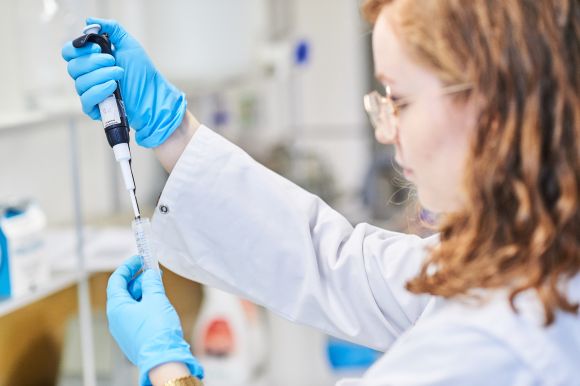
The ‘Cross-border pilot projects to boost innovation in the health system through data sharing’ workshop was held on Wednesday 12th October as a part of the 20th European Week of Regions and Cities in Brussels, Belgium. The workshop presented the results of three Interreg V-A Italy-Slovenia pilot projects funded by the EU Cohesion Policy programme 2014-2020. They were aimed at improving interregional collaboration, data-sharing, and efficacy in treatments in the health system through a digital transition to internet platforms, databases, and biobanks.
The workshop started with the presentation of ISE-EMH, followed by C3B and CATTEDRA.
ISE-EMH: Italian-Slovene ecosystem for electronic and mobile health
The ISE-EMH project is a 28-month Interreg cooperation among six health institutions from Italy and Slovenia. According to Interreg V-A Italy-Slovenia’s website, its value is 8.66 million euros.
“The objective was to design an ICT system, a kind of platform in the field of electronic and mobile health to improve transborder cooperation and help the patients in Italy and Slovenia,” said Matjaž Gams, head of the Department of Intelligence System from the Jožef Stefan Institute, who presented the actions implemented by the ISE-EMH project during the workshop.
Research conducted by the members of the partnership found that AI systems had 20% higher outcomes than humans in finding the best countermeasures against Covid-19. According to Gams, in the last ten years, the “number of doctors and the number of nurses grew about one-third. But at the same time, the quality measure of the health system decreased.”
For this reason, The ISE-EMH has developed a platform called ‘Insieme,’ introducing a telecommunication, electronic, and mobile health platform system that would help in the quality and timing of diagnosis of simple health problems, Gams said. The patient seeking a diagnosis would connect to the platform, explain the symptoms, and receive assistance.
C3B: Cross-border platform for efficient management of biobanks
C3B is an ongoing project that would improve the health sector with biobanks, a collection of biological material and associated data that would boost health research, clinical care, and the rapidity of the diagnosis.
According to Devis Pascut, Senior Researcher of the ONLUS Fondazione Italiana Fegato, “The aim of the project is the identification and adoption of a joint solution for the modernization of cross-border biobanks, as well as the establishment of the first pilot by laboratories in the area of the program.”
Pascut explained that C3B collects data through voluntary donors. Therefore, it is a service “from the community, for the community.”
According to him, biobanks accelerate medical innovation. Pascut explained the benefits of this project through a case study on liver diseases, which cause 2 million deaths yearly because of unmet clinical needs - he explained. Using a biobank would allow scholars and physicians to achieve results in 6 years. In contrast, research conducted without the help of a biobank would take 16 years.
CATTEDRA: Crossborder cooperation for innovative diagnosis of rare diseases in pediatricians
The last part of the conference was dedicated to the presentation of the Interreg project CATTEDRA by Alberto Tommasini, Associate Professor of Pediatrics at the University of Trieste, Medical Director of the Institute of Child and Maternal Health - IRCCS "Burlo Garofolo."
The project counted five partners among Italian and Slovenian institutions and was born after an unmet need to create a tool for sharing clinical data on rare diseases affecting children.
Therefore, CATTEDRA aimed at improving care for rare and complex chronic diseases in children, such as rheumatologic complaints and autoimmune phenomena, through a shared pool of knowledge and therapeutic methodologies among the partner institutions involved in the EU-financed project.
“Due to the complexity (of the disease), the diagnosis may be delayed, and the treatment may be a challenge with a significant consequence on the health of these children and their life prospects,” commented Tommasini.
Thanks to the collaboration with Better, a Slovenian company specialized in integrating clinical databases, Tommasini and his colleagues from the University of Ljubljana developed a cross-border shared database to analyze clinic and laboratory data. The objective was to improve the diagnosis and clinical classification of the disease, its outcome, and the impact of the treatments.
The Cattedra project ended in the last days of July 2022. According to Tommasini, its results highlight both the project's feasibility and potential.
The future of the health system according to the EU
The workshop ended with a remark from Laura Comelli, Managing Authority of the Interreg V-A Italy-Slovenia programme and moderator of the event, who stressed the importance of a general digital transition, which became an obligation during the Covid-19 pandemic. The workshop showed that a digital transition in the health sector translated into projects including internet platforms and biobanks.
“In our field, no one will go far alone. Thus, we need to create networks, to share expertise, trust, and knowledge to really speed up the improvement of the research. (The European Cohesion Policy) is a good opportunity to do it,” concluded Pascut.
By Eleonora Francica
Edited by Clémence Maquet



